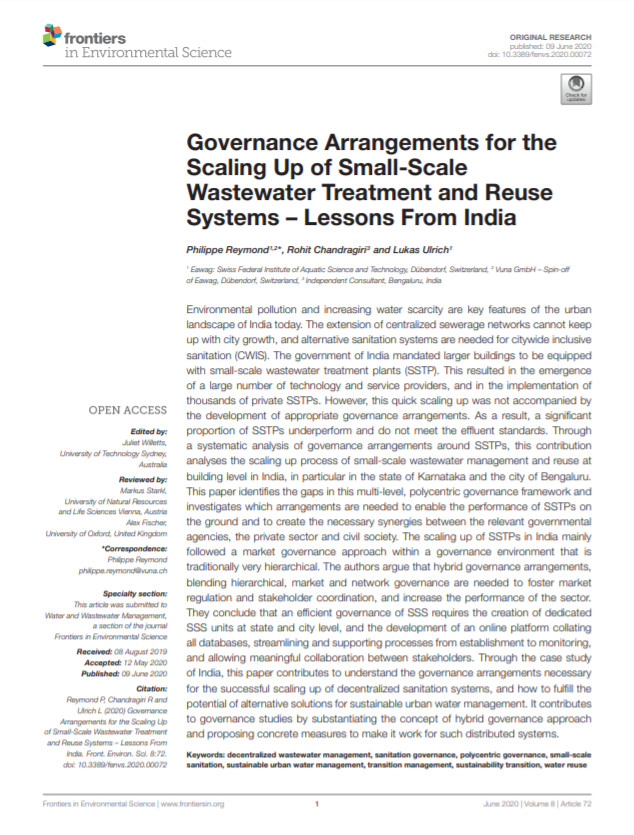Governance Arrangements for the Scaling Up of Small-Scale Wastewater Treatment and Reuse Systems – Lessons From India
 |
article Jun 2020 ; 16 pages
Aut. Philippe Reymond & Rohit Chandragiri &
Ed. Frontiers in Environmental Science - Lausanne
Téléchargeable sous format: PdF
Téléchargeable chez l'éditeur
Page de présentation d'un éditeur
Abstract:
The government of India mandated larger buildings to be equipped with small-scale wastewater treatment plants (SSTP). This resulted in the emergence of a large number of technology and service providers, and in the implementation of thousands of private SSTPs. However, this quick scaling up was not accompanied by the development of appropriate governance arrangements. As a result, a significant proportion of SSTPs underperform and do not meet the effluent standards. Through a systematic analysis of governance arrangements around SSTPs, this contribution analyses the scaling up process of small-scale wastewater management and reuse at building level in India, in particular in the state of Karnataka and the city of Bengaluru. This paper identifies the gaps in this multi-level, polycentric governance framework and investigates which arrangements are needed to enable the performance of SSTPs on the ground and to create the necessary synergies between the relevant governmental agencies, the private sector and civil society.
Through the case study of India, this paper contributes to understand the governance arrangements necessary for the successful scaling up of decentralized sanitation systems, and how to fulfill the potential of alternative solutions for sustainable urban water management.
Mots clefs: |
eaux usées (réutilisation) (CI) (DT) (OP) (ope) , eaux usées (traitement des ) (CI) (DT) (OP) (ope) |
Pays concerné: |
Editeur/Diffuseur: |
|
Frontiers in Environmental Science - Lausanne - Suisse |
En cas de lien brisé, nous le mentionner à communication@pseau.org